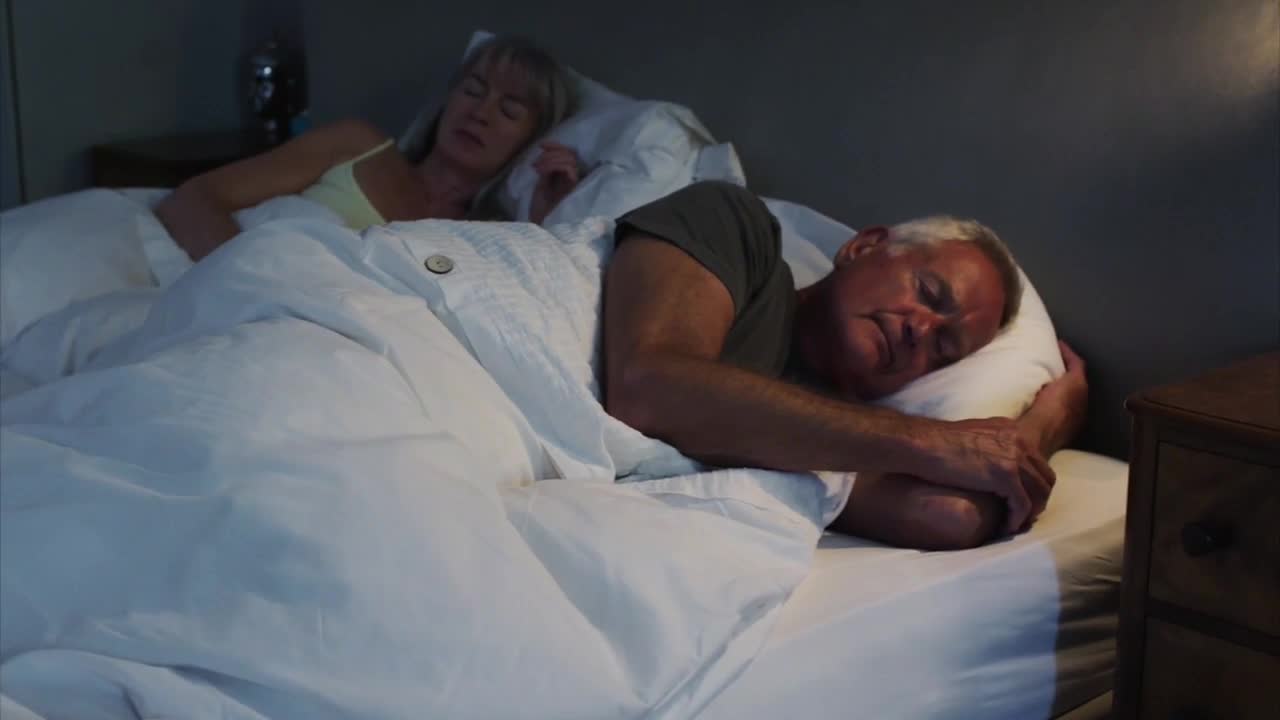KENT COUNTY, Mich — Fall is here, and while the days are getting shorter and nights are getting longer, that doesn’t automatically mean better sleep.
According to the National Institute of Health, people spend about a third of their lives sleeping. As the seasons change, sleep habits may also shift.
“Humans, are mammals, right? And we follow that circadian rhythm,” said Dr. David Rzeszutko with Priority Health. “So we do get this sense of, I think I need a little bit more sleep, or some more restorative sleep. And so there's a biologic basis to that. And responding to that and listening to our bodies is very, very important.”
Rzeszutko said keeping a routine is key when it comes to healthy rest.
“Keeping our routine schedule, time we go to bed time we wake up, there's a tendency on the weekends to maybe sleep in a little bit later that can kind of kind of throw us off a little bit,” he said.
Daily activity also plays an important role.
“Focusing on good daily exercise and activity that will help us decompress at nighttime. And then think about your sleep environment. So let's think about the bedding that you're that you're sleeping on, the clothes that you're wearing so you're not overheating,” Rzeszutko said.
He also recommends cutting back on screen time before bed.
“That can kind of keep the mind racing, so maybe repurposing a little bit and allowing the mind to sort of decompress before we're just going to jump right into bed,” he said.
Deep sleep is another important factor in feeling rested.
“When we get into those deep phases of sleep, it's called the third stage of sleep, or REM sleep, that's where we'll actually hit a dream state. And we believe that the neurotransmitters and chemicals and all of the restorative things of sleep are happening during that time. So if you're awakening and you remember your dreams, or you have hit a dream state, you'll know that you're actually getting good, restorative sleep,” Rzeszutko said.
Daylight saving time also impacts sleep.
The seasonal clock change takes place Nov. 2, when people will “fall back” one hour.
Resources, including Priority Health’s Wellbeing Hub, are available here.Fall is here, and while the days are getting shorter and nights are getting longer, that doesn’t automatically mean better sleep.
According to the National Institute of Health, people spend about a third of their lives sleeping. As the seasons change, sleep habits may also shift.
“Humans, are mammals, right? And we follow that circadian rhythm,” said Dr. David Rzeszutko with Priority Health. “So we do get this sense of, I think I need a little bit more sleep, or some more restorative sleep. And so there's a biologic basis to that. And responding to that and listening to our bodies is very, very important.”
Rzeszutko said keeping a routine is key when it comes to healthy rest.
“Keeping our routine schedule, time we go to bed time we wake up, there's a tendency on the weekends to maybe sleep in a little bit later that can kind of kind of throw us off a little bit,” he said.
Daily activity also plays an important role.
“Focusing on good daily exercise and activity that will help us decompress at nighttime. And then think about your sleep environment. So let's think about the bedding that you're that you're sleeping on, the clothes that you're wearing so you're not overheating,” Rzeszutko said.
He also recommends cutting back on screen time before bed.
“That can kind of keep the mind racing, so maybe re-purposing a little bit and allowing the mind to sort of decompress before we're just going to jump right into bed,” he said.
Deep sleep is another important factor in feeling rested.
“When we get into those deep phases of sleep, it's called the third stage of sleep, or REM sleep, that's where we'll actually hit a dream state. And we believe that the neurotransmitters and chemicals and all of the restorative things of sleep are happening during that time. So if you're awakening and you remember your dreams, or you have hit a dream state, you'll know that you're actually getting good, restorative sleep,” Rzeszutko said.
Daylight saving time also impacts sleep.
The seasonal clock change takes place Nov. 2, when people will “fall back” one hour.
Resources, including Priority Health’s Wellbeing Hub, are available here.
This story was initially reported by a journalist and has been converted to this platform with the assistance of AI. Our editorial team verifies all reporting on all platforms for fairness and accuracy.
Follow FOX 17: Facebook - X (formerly Twitter) - Instagram - YouTube





